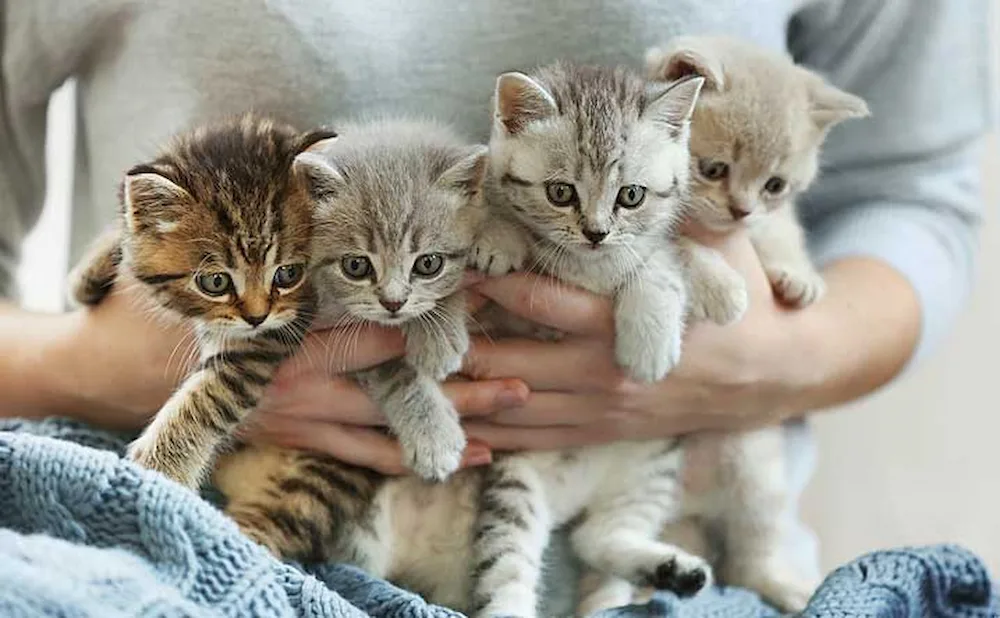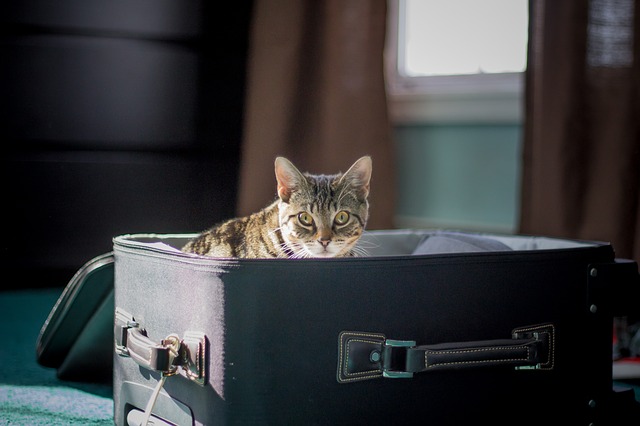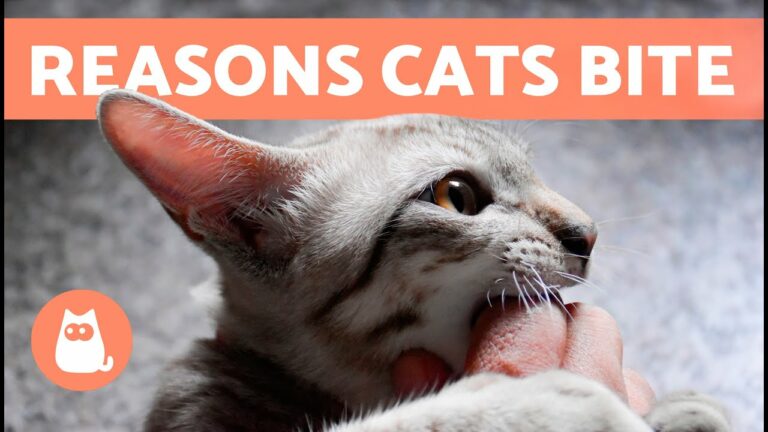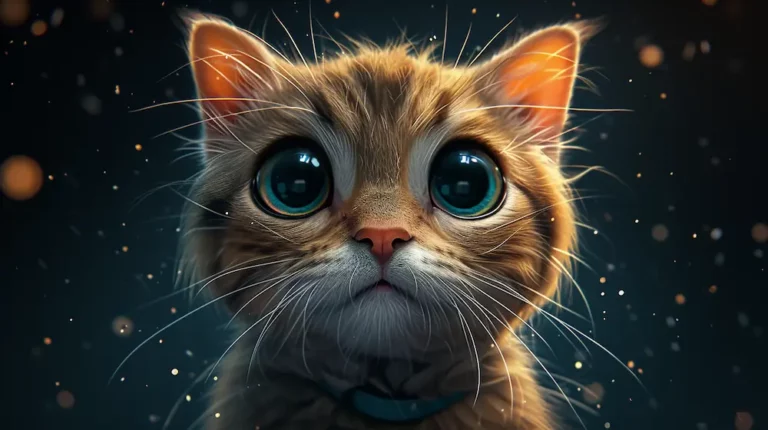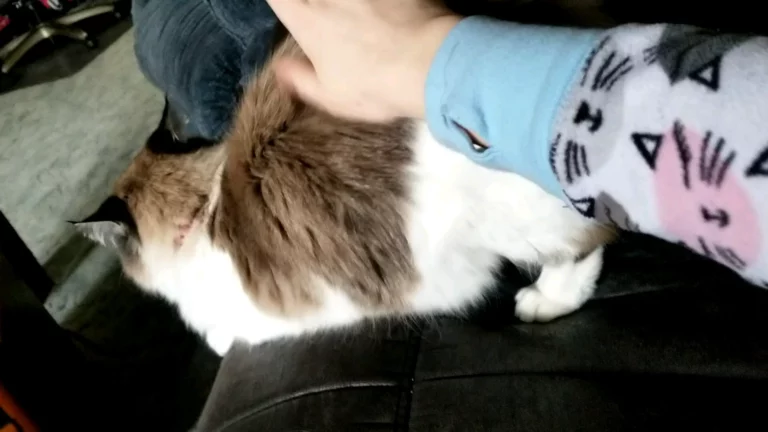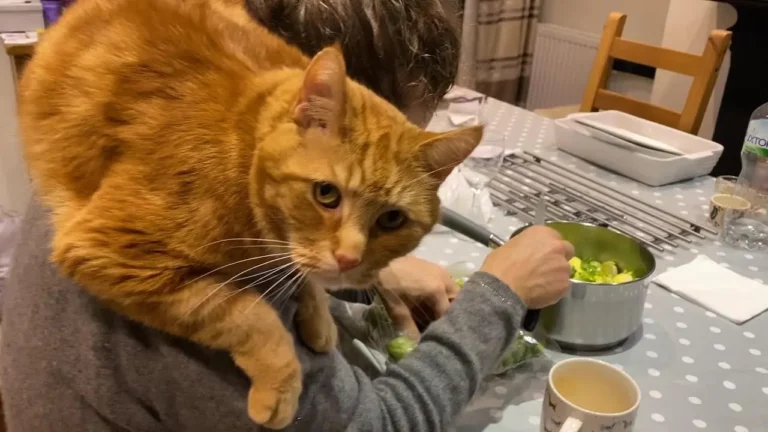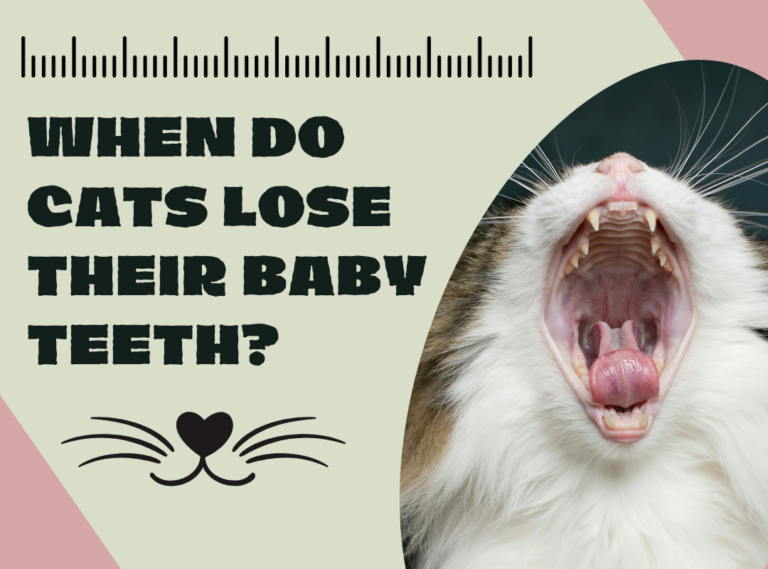Do Cats Remember Their Siblings? Everything You Need Cat Sibling Bonds & More
Have you ever watched a litter of kittens playing together and wondered, “Do they remember each other after they’re separated?”
It’s a question that tugs at the heartstrings of every
Surprisingly, cats have a unique way of forming and maintaining relationships, a bit different from what you might expect. So, to sum it up – Cats might be able to remember their siblings.
Still, the answer isn’t as straightforward as a simple yes or no.
In this guide, I will dig deep to help you learn more about your
How Good Is A Cat ‘s Memory?

Research shows that cats possess both short and long-term memory that play a distinctive role allowing them to easily navigate the world around them.
Felines are naturally intelligent and their memory also functions pretty well.
Here’s more information about
Short-Term Cat Memory
Drawing from my deep dive into the fascinating world of feline cognition, let’s unpack a concept central to understanding a
Some studies claim a
So, while there’s no precise answer, research shows that cats can remember the size and location of an object for a long time, compared to other animals.
Long-Term Cat Memory
Diving deeper into the mysteries of the feline mind, let’s explore the realm of “long-term memory,” a capacity that enables individuals to store information for lengthy durations.
Cats exhibit a “highly developed” long-term memory.
While it’s difficult to give a precise assessment, experts believe cats can hold on to some memories for a lifetime – in some cases, that can be anywhere from 15 to 20 years.
Understanding Kitten Dynamics & Their Bonds
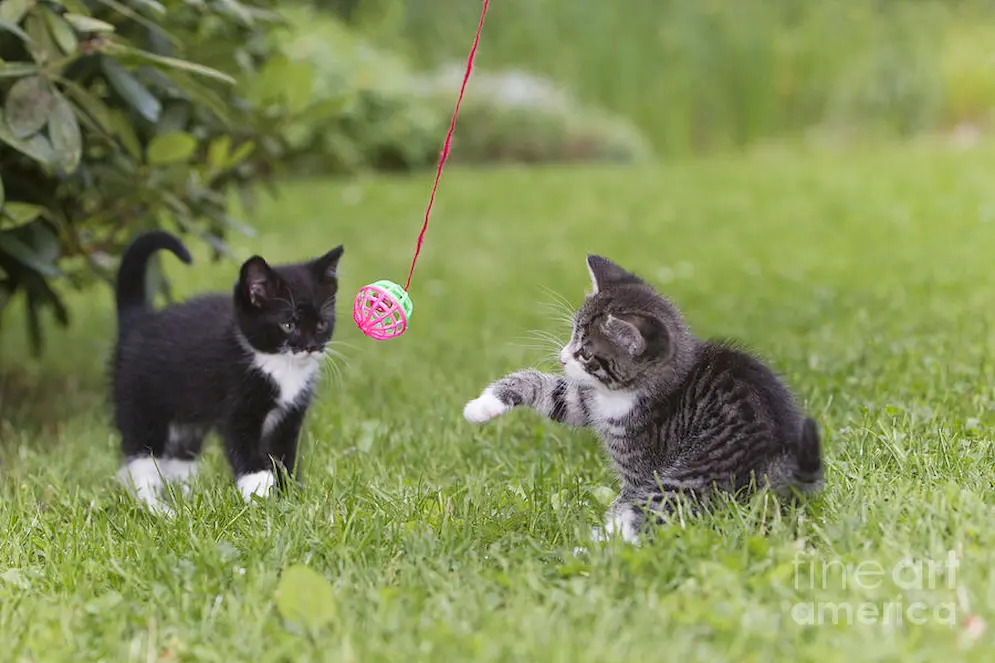
The kittenhood stage, brimming with developmental milestones, lays the groundwork for a
Kittens from the same litter are considered littermates and they share a special bond essential for developing skills they will need later in life.
That’s why understanding the dynamics between kittens and their siblings during this period can be profound for any feline caretaker.
Do Kittens Form Strong Bonds With Their Siblings In Kittenhood?
Yes, they do.
In the initial weeks of life, kittens forge incredibly strong bonds with their siblings. These bonds represent a vital aspect of a kitten’s development as they play a dual role in their life.
Firstly, they’re critical for the kitten’s mental, emotional, and social development —learning to communicate, share, and live harmoniously with others.
Secondly, they aid in physical development through playful wrestling and chasing, which improves their coordination and strength.
People raising multiple kittens can nurture these connections by allocating time for them to play, explore, and interact in a safe, supervised environment.
Do They Treat Siblings Differently From Other Cats?
While most kittens are more than happy to engage and play with their siblings, the dynamic shifts noticeably when they are introduced to cats outside their litter.
During kittenhood, siblings learn the language of
They understand each other’s boundaries, how to play without causing harm, and importantly, how to communicate effectively.
The language they share forms a foundation, uniquely profound, compared to the relations they might develop with other cats later in life.
That said, unlike the intrinsic bond between siblings, relationships with unrelated cats need to be built from scratch, often marked by initial hostility or indifference.
This doesn’t mean cats can’t form strong friendships with non-siblings, but such relationships typically demand more time and patience.
Littermate Syndrome: What Is It & How It Affects Kittens?
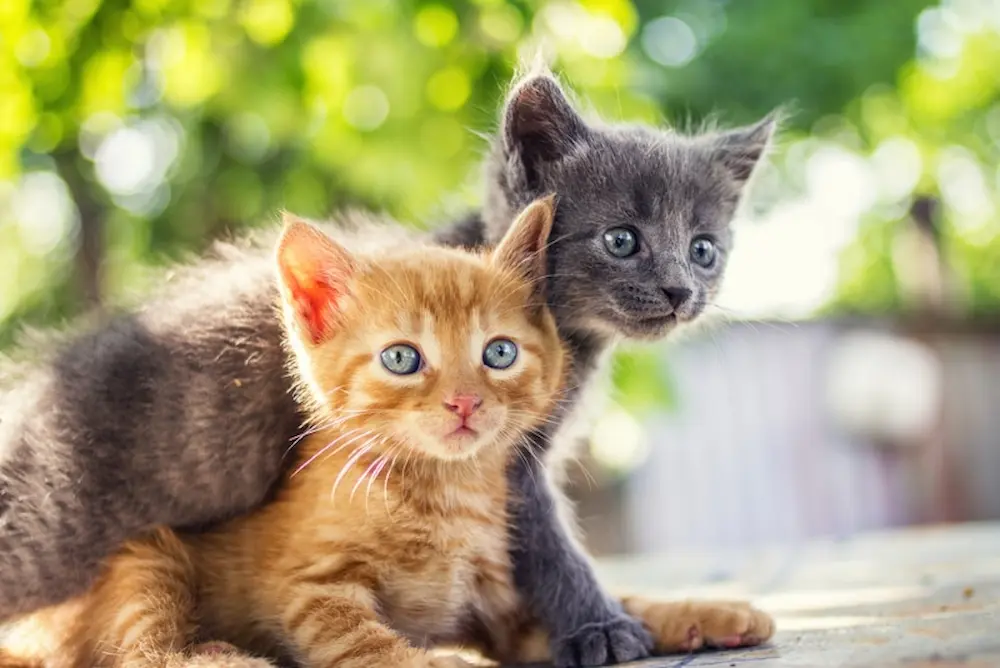
During their kittenhood stage, cats form strong bonds with their mothers and siblings, as these relationships are crucial for them to live a healthy and social life.
However, there’s a common phenomenon that can affect cats and often sparks discussion among feline owners – the littermate syndrome.
But what is it? And how does it affect our felines?
Littermate syndrome is a social condition that occurs once kittens from one litter form such strong bonds that they often have difficulties communicating and bonding with other cats and animals.
It’s common for littermates to exhibit behavioral issues, such as aggression, and socially exclude anyone else who doesn’t share their bond: from other siblings to humans.
Regardless of several negative sides, the littermate relationship is still important and can provide several benefits for cats.
The Importance & Benefits Of Littermates
The connection between littermates is important as it represents the foundation of a kitten’s social development.
Littermates teach each other valuable lessons that are hard to replicate in human- or adult-cat interactions.
For example, during play, kittens learn to control the strength of their bite and the importance of non-verbal communication among felines.
This form of early socialization is crucial in preventing future behavior issues, such as excessive hostility or fear.
Kittens raised with their siblings tend to show better stress coping mechanisms as the presence of a familiar companion during the early weeks of life provides a sense of security that can significantly reduce anxiety.
Should You Adopt Multiple Littermates Together?
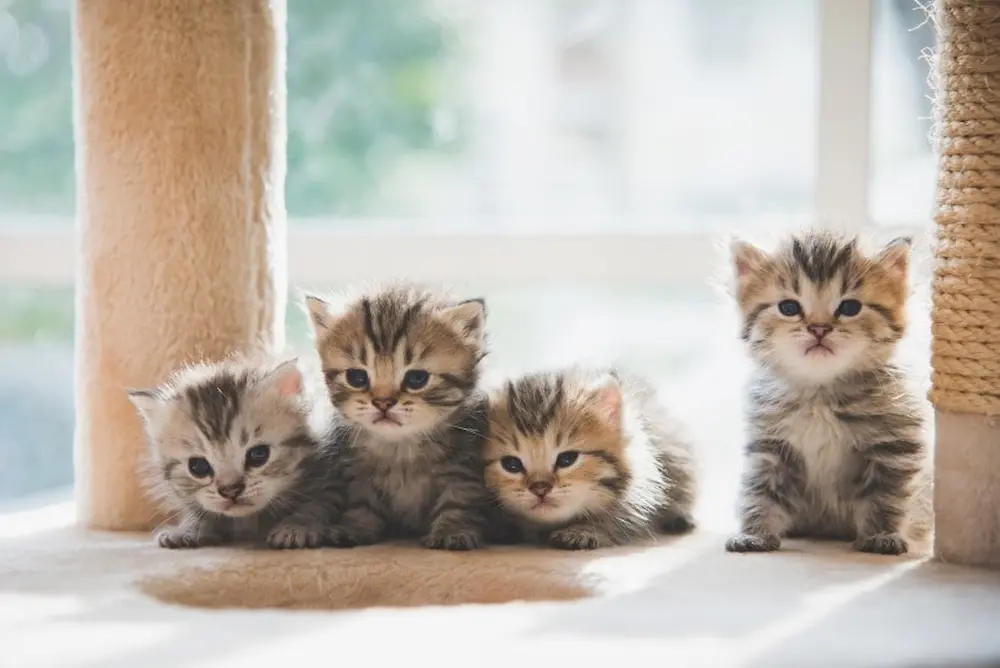
The littermate connection plays a pivotal role in the early stages of your
So, when considering adding a new
Firstly, littermates have a built-in playmate from day one. This is crucial for their physical and mental development as kittens learn through play.
They practice hunting techniques, explore their environment, and develop social cues together.
Having a sibling by their side means they’re never short of a partner in crime, making their transition into a new home smoother and less stressful.
Besides, adopting littermates can significantly ease the burden of entertainment and socialization on the pet owner. Littermates can keep each other company, saving you from the challenging job of constantly engaging them.
While these cats need human affection and interaction – there’ll be much less pressure on your shoulders as you won’t be their sole source of entertainment.
Another critical aspect is emotional support as moving to a new home can be an overwhelming experience for kittens.
But, having their sibling by their side can provide a sense of security and comfort while relieving stress and anxiety.
So, if you’re thinking about adopting a
When Is The Best Time To Separate Cat Siblings?
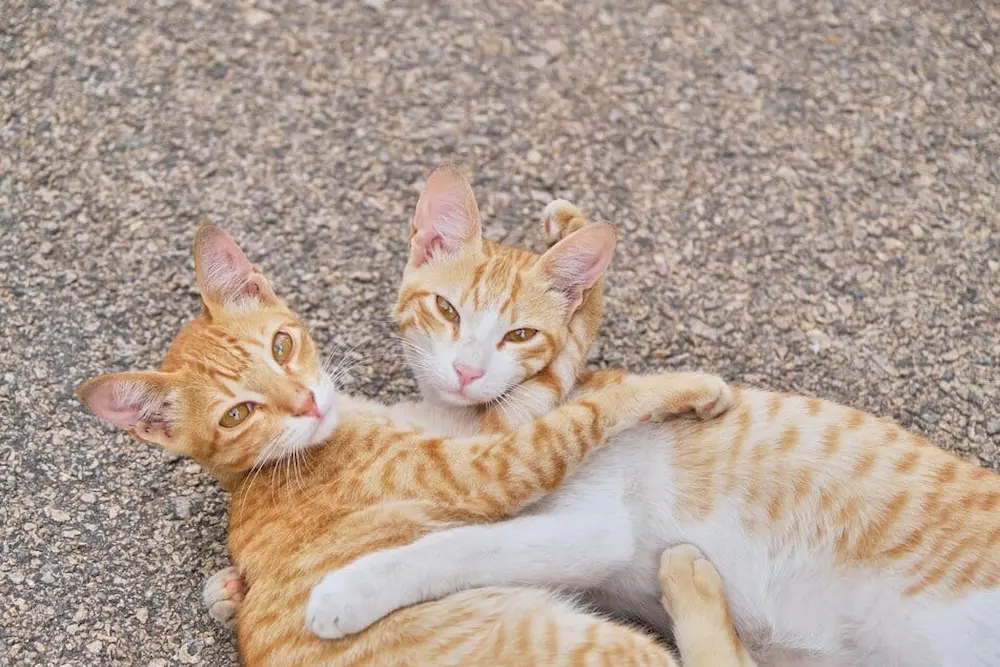
You should carefully consider when is the best time to separate
Conventional wisdom often suggests that kittens should stay with their mother and littermates until at least 8 to 12 weeks of age.
This period allows them to learn crucial social cues, including bite inhibition, body language, and the social hierarchy of feline groups.
But, the optimal separation time can also depend on the individual kittens and their developmental progress.
From my experience, observing kitten behavior around their siblings and mother can provide crucial insights.
Kittens who are highly interactive, confident, and beginning to explore more independently may thrive even if rehomed a tad earlier.
Conversely, shy or less assertive kittens might benefit from a bit more time within the comfort and safety of their litter.
Are Cats Sad Upon Separation From Their Siblings?
The question of whether cats experience sadness upon separation from their siblings also puzzles many
So, are our felines sad when separated from their siblings?
Cats are not sad in the human sense, but they do notice the absence of their constant companions.
Their response to this change varies widely depending on their personality, age, and the circumstances of their separation.
In my practice, I’ve observed littermates who lived together for years before being separated.
In many cases, both cats adjusted well over time, finding new routines and bonding with their human families or other pets in the household.
Kittens Adapting To Living In A New Home
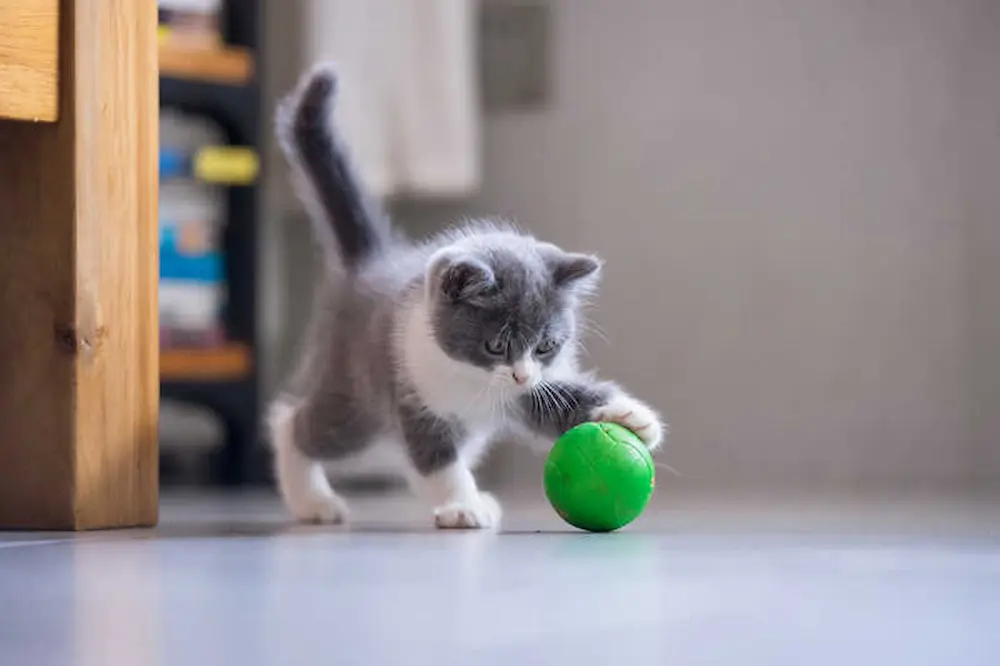
While most kittens moving to a new home adapt to separation from their siblings and the new living environment quite well, the initial transition can be challenging.
Because of that, it’s your job as a responsible
Signs Of Distress
Here are some signs that your
- Increased vocalization: Some cats become more vocal, meowing more frequently or at unusual times, possibly signaling their discomfort or confusion about the change in their environment.
- Changes in appetite: A sudden increase or decrease in appetite can signal stress in cats. Monitoring their eating habits closely during transition periods is crucial.
- Altered sleep patterns: Like humans, cats may experience sleep disturbances during times of stress. You might notice your
cat sleeping more than usual or being restless at night. - Seeking more attention: A
cat missing its littermates might seek more interaction and comfort from their human companions, demonstrating clinginess or becoming more affectionate.
What Can You Do To Help?
Moving to a new home and getting separated from their family can lead to stress and anxiety in your cat.
If you notice that your new feline is in distress, there are several steps you can take to make this change easier:
- Maintain routine: Keeping feeding, playtime, and rest periods consistent can provide a sense of stability for your
cat . - Introduce new forms of enrichment: Interactive toys, puzzle feeders, exercise wheels, or controlled outdoor time (if possible) can help distract your
cat from the absence of their sibling and stimulate their mind and body. - Consider a new companion: If your
cat seems particularly lonely, adopting anothercat or even a dog might be beneficial. Choosing a companion with a compatible temperament is key, and gradual, supervised introductions are essential.
Will Cat Siblings Recognize Each Other After Separation?
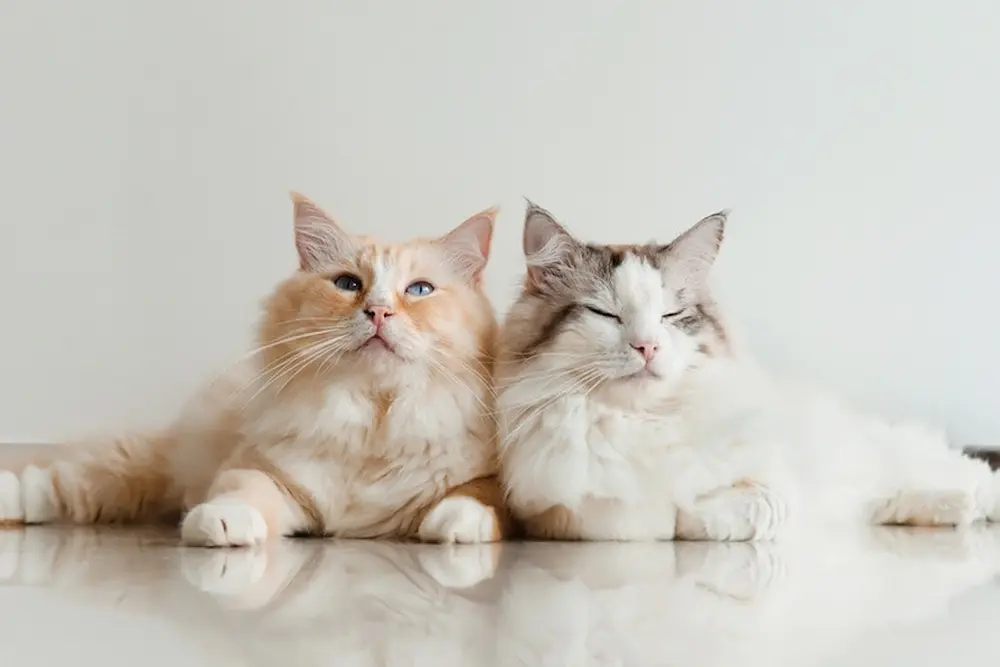
Cat siblings might recognize each other after separation – after
First, it’s crucial to understand that cats rely heavily on scent to recognize each other. This reliance on olfactory cues is far more significant than visual recognition.
Therefore, when siblings are separated for a while and then reintroduced, the lack of the familiar scent can lead to them not recognizing each other immediately.
For example, Jasmine and Kasper, two sister cats separated at a young age, didn’t recognize each other when reintroduced.
They had to be gradually accustomed to each other’s presence, indicating that their memories of being siblings didn’t play a significant role in their recognition process.
Instead, creating positive associations between them over a period of 2-3 weeks was key to fostering a peaceful coexistence.
However, it’s not just about scent, as a
While some cats may not visually recognize their siblings after being separated for long periods, they can come to accept and even form bonds with them over time through shared experiences and positive interactions.
FAQ – Frequently Asked Questions
Will Kittens Remember Mother and Father When They Reach Adulthood?
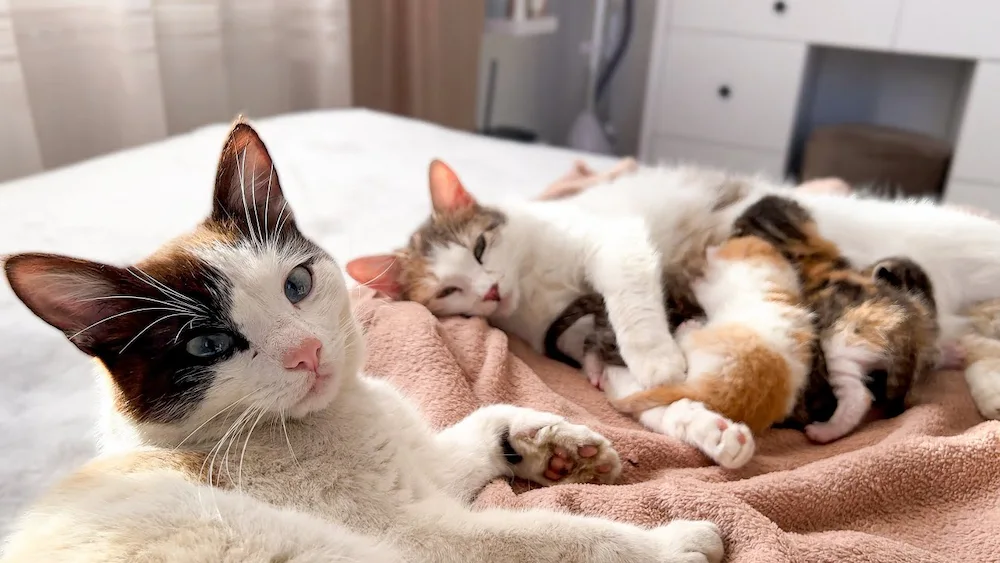
Once kittens grow up and particularly if they’ve been separated from their family, their recognition can fade.
In the wild, recognizing family members isn’t as crucial once cats become independent. Hence, over time, they might not recognize their parents by sight or scent.
This doesn’t necessarily imply any form of feline cold-heartedness. Instead, it’s a testament to their adaptability and independence.
Cats form bonds based on their current social environment.
If reintroduced with their parents as adults, they may get along, but this is more about their social compatibility than familial recognition.
Is My Cat Missing Its Siblings And Their Bond?
Understanding the intricate nature of feline relationships, especially the bond between siblings, reveals the complexity of their social world.
While the reliance on scent for recognition may wane as cats mature and venture into independence, their adaptability shines through.
They might not remember their siblings in the way we’d expect, but they possess a remarkable ability to form new bonds and adapt to their environments.
Remember, every
